This summer, our interns will be writing weekly and sharing their young feminist voices.
Meet our 2016 summer interns!

Name: Emily Kilheeney
School: Hofstra University, class of 2018
Particular advocacy issue you’re concerned with: public policy, voter mobilization, intersectionality, reproductive justice, sex education, Planned Parenthood advocacy
What feminism means to you: “Leave this world a little better than you found it.” As long as I can remember, this mantra has guided me in times of growth within my life. This dictation has led me to pursue a life in progress- from a young age, I didn’t know exactly what I wanted to do, but I knew that I wanted to be a force of positive change in the world. I believe that there is nothing more important anyone can do with their lives than to fight for what they believe to be right- “feminism” is the verbal embodiment of these ideals. Feminism is an ideology that demands one to live by convictions that strive for enduring social, political, and economic equality. It is important to me that this definition be inclusive of all gender identifications, sexual orientations, skin colors, economic status, and other characteristics that have historically been oppressed.
Department: Communications
Name: Elika Nassirinia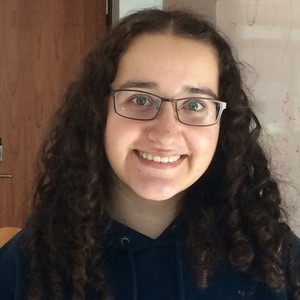
School: Pomona College, Class of 2017
Particular advocacy issue you’re concerned with: Sexual violence, reproductive justice
What feminism means to you: Feminism to me constitutes recognition of human dignity. It is a recognition that conditions in the world for certain groups are not what they should be, and a promise to point out this disparity and work to remedy it. Feminism is acceptance that our very humanity verges on the entitlement of all to absolute respect and the freedom of choice, and it is the decision to regard anything less as unacceptable.
Department: Government Relations/ Public Policy
Name: Elizabeth Levinson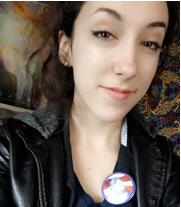
School: Washington University in St. Louis, Class of 2018
Particular advocacy issue you’re concerned with: Reproductive justice and equal pay.
What feminism means to you: Feminism is empowerment– for anyone who needs it.
Department: Vice President’s Office
Name: Mary Frances Foster
School: Elon University, class of 2017 (yikes) 
Particular advocacy issue you’re concerned with: I have focused mainly on anti-racist activism at Elon University with special attention to white privilege. I also have done a lot of work on the intersection of privilege, feminism and rap music. I think it is really important to think about how daily activities like listening to music, watching TV, etc. interact with privilege and racism because we often think these issues are just isolated to the political sphere/political campaigns. Lastly, I am passionate about contributing to the conversation and activist efforts to stop violence and sexual assault against women. Specifically, I have plans to become more involved with the issue of sexual assault on college campuses with a focus on the time it takes to address reports, procedural education on campus, and proper training for administrators/faculty.
What feminism means to you: Feminism is not one choice, but the constant and consistent choice of aiming for a more just and equal society. It is not easy, but it is risky. It is not always liberating, but it is difficult. And, it is not always successful, but it is necessary. To me, feminism is a tiring and exhilarating lifestyle that challenges me, but gives me the strength and freedom I deserve as a woman.
Department: Development
Name: Amari O’Bannon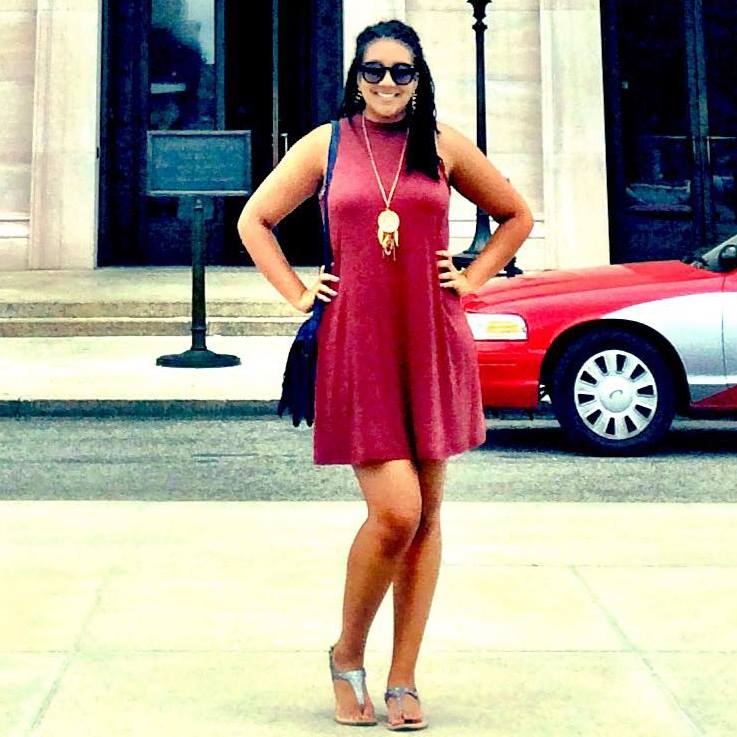
School: Georgetown University, Class of 2018
Particular advocacy issue you’re concerned with: Access to comprehensive reproductive healthcare for people of all ages, socioeconomic backgrounds, racial backgrounds, and sexual orientations; and the ability to make reproductive decisions without interference.
What feminism means to you: Feminism is about deconstructing the traditional concepts of femininity and masculinity with a focus on the intersectional struggles of different demographics of women such as different racial, ethnic, socioeconomic, or sexual orientation backgrounds. This deconstruction relies on a universal belief that all people deserve equal opportunities to access healthcare, improve their economic situation, live without fear of violence, and be equally protected under the law.
Department: President’s Office
Name: Vanessa Pius
School: Smith College, Class of 2017
Particular advocacy issue you’re concerned with: Reproductive Justice, LGBT Issues, Gun Control, Legislative Representation
What feminism means to you: Feminism is the belief that women and men and all genders in between have inherent equal worth and should be allowed equal opportunities. Institutional inequality and historic societal privileging of men (especially the white, Christian, straight cis-men who most often hold power) means women must fight to achieve such equality and opportunity.
Department: President’s Office
Name: Angela Myers
School: Barnard College, class of 2018
Particular advocacy issue you’re concerned with: School to prison pipeline, women’s health, intersectional feminism
What feminism means to you: Equality
Department: Communications
Name: Sarah Nealon
School: Wellesley College, class of 2018
Particular advocacy issue you’re concerned with: I am concerned with racial justice, particularly as it relates to women of color and the Queer People Of Color (QPOC) community. So much violence and injustice is directed at those communities and it often goes unnoticed by larger movements. Within racial justice, I am most passionate about criminal justice reform. Our current criminal justice system is waging war on low-income people of color, and we need radical change to stop it.
What feminism means to you: To me, feminism means fighting for justice for everyone. Intersectionality is the basis for my feminism—you cannot separate gender from other parts of someone’s identity. Most societal issues are tied to one another, and we will not fix them until we recognize that.
Department: President’s Office
Name: Luna Floyd
School: Brown University 2019
Particular advocacy issue you’re concerned with: Empowering low-income women.
What feminism means to you: Feminism is nothing if not intersectional. Queer, low-income, disabled, person of color: each identity can bring a new set of societal disadvantages. By empowering women of all identities, we can lift each other up and celebrate all narratives. Feminism means equality between all genders. Feminism means ensuring women have the same opportunities and rights as men, and that those rights and opportunities are given to all women regardless of their other identities. Feminism means bodily autonomy and one’s right to exercise it.
Department: Government Relations/ Public Policy
Name: Gillian Henry
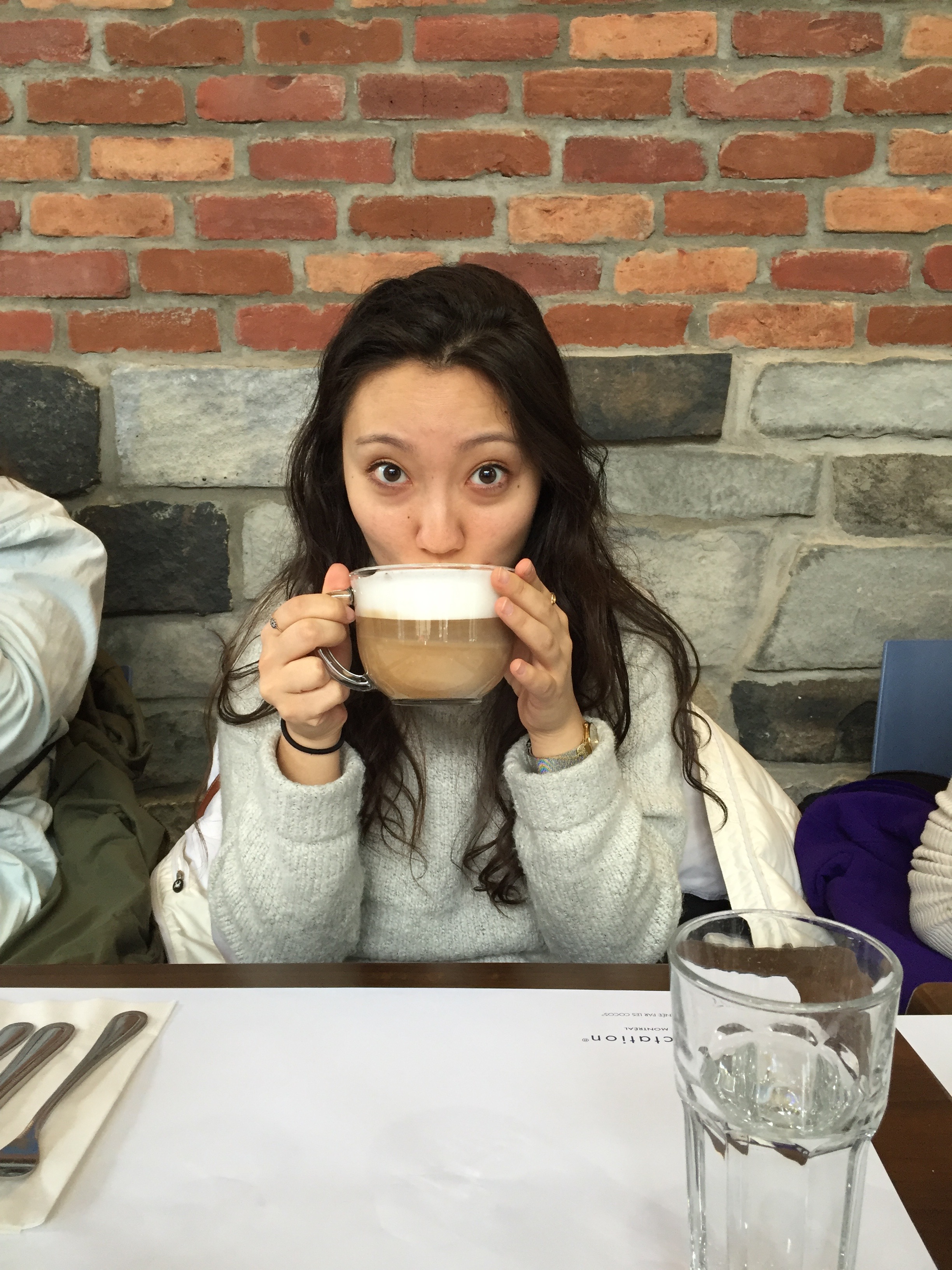
School: Union College, class of 2017
Particular advocacy issue you’re concerned with: reproductive rights and political representation
What feminism means to you: To me, feminism is fighting injustices that my mom faced- an orphan in a third world country- and the inequalities I face in college and as a future “career woman”.
Department: PAC
Name: Andrea Rose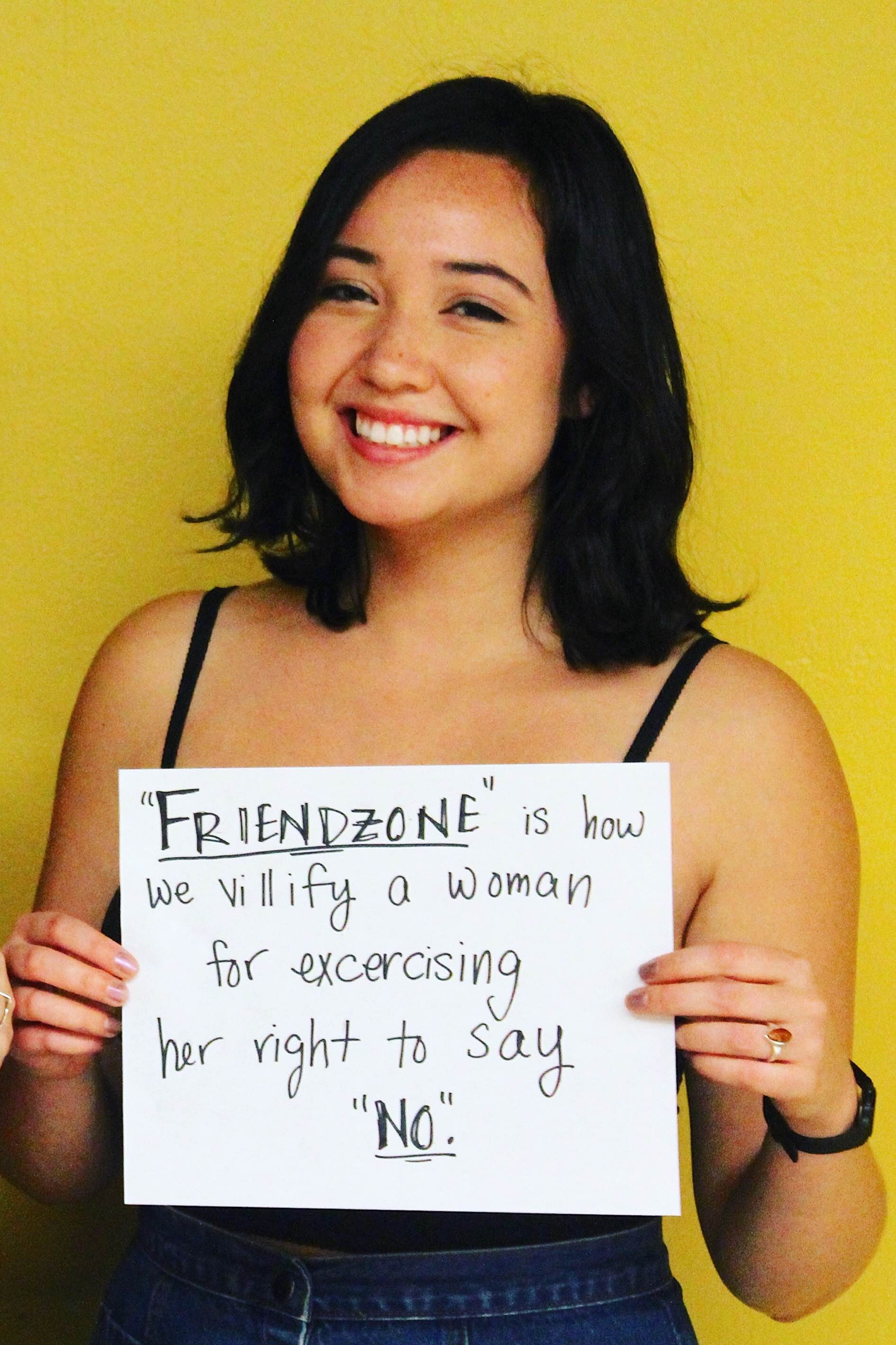
School: UC Berkeley, class of 2017
Particular advocacy issue you’re concerned with: intersectionality
What feminism means to you: My feminism is something that cannot be severed from my identity. I carry it with me everywhere, from my home to my political science courses at UC Berkeley to my comedy club meetings and beyond. As a mixed race Korean American woman, I constantly think about feminism within an intersectional framework, which allows me to better critique the feminist presence in mainstream society (which is predominantly white, middle class, cis-gendered, and able-bodied). This lack of diversity represents an introverted view of feminism that fails to acknowledge other types of systematic oppression and erases narratives and identities that are extremely important. Therefore, the type of issues I dedicate most of my efforts towards are intersectional; most recently I have become interested in addressing the sexual abuse to prison pipeline, which disproportionately affects girls of color. My experiences allow me to scrutinize not only the disenfranchisement of women, but also the disenfranchisement of women of color, the trans community, LGBTQ+ women, disabled women, and low-income women. My feminism pushes me to unite with my community in order to break down the barriers preventing women from achieving their potential. It inspires me to destroy social norms that lead to the mental and physical harm of women. It allows me to recognize that patterns of oppression are linked together by society. It makes me embrace the diverse ways in which we experience our womanhood. And it drives me empower women both locally and globally, all doing so within an inclusive framework. To me, feminism means celebrating that though our oppression is intersectional, so too is our liberation.
Department: Field Organizing
Name: Mina Brien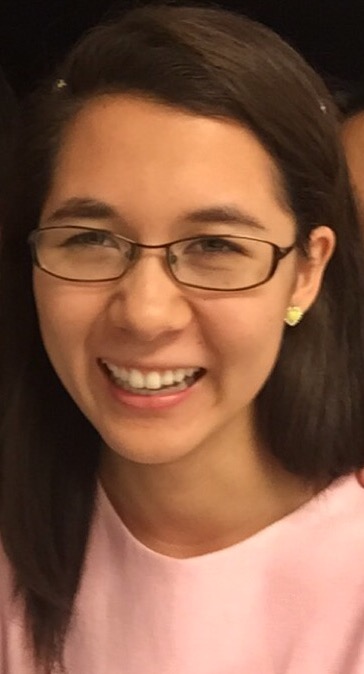
School: George Mason University, class of 2017
Particular advocacy issue you’re concerned with: Reproductive Rights
What feminism means to you: Feminism to me is equality for everyone, regardless of your gender, race or sexuality. Equality is a given right that everyone deserves to have. The fight for this equality starts with finding the common ground between two individuals. For us, that’s easy because our commonality is that we are all human. Because I am human, I am your equal and you are mine. With this idea and with the idea that the love for fellow humans can bond individuals in the fight for equality, we can continue the fight for a more equal tomorrow.
Department: Field Organizing